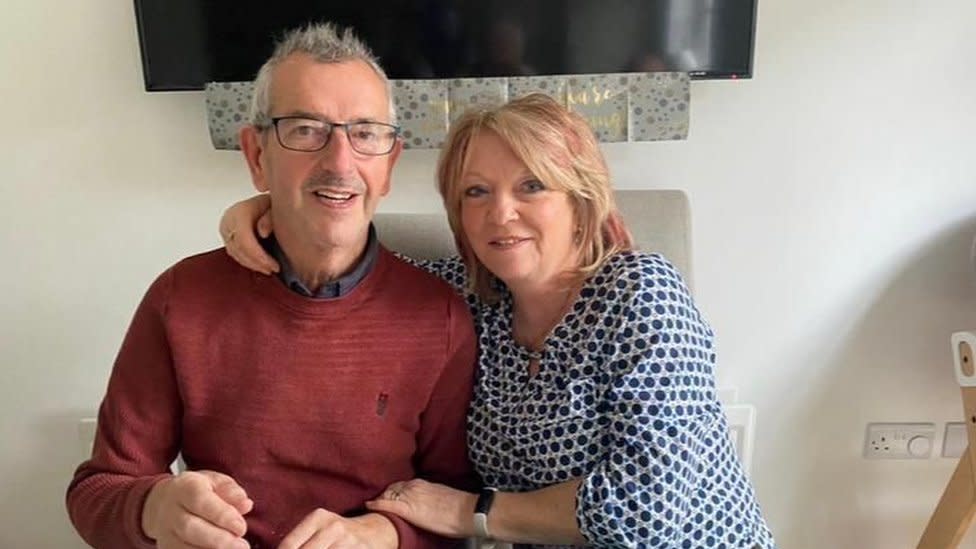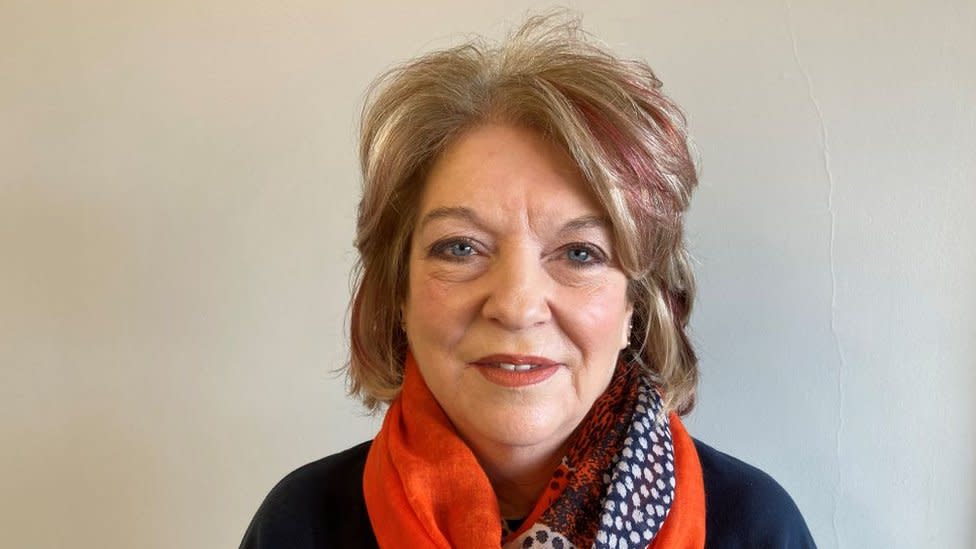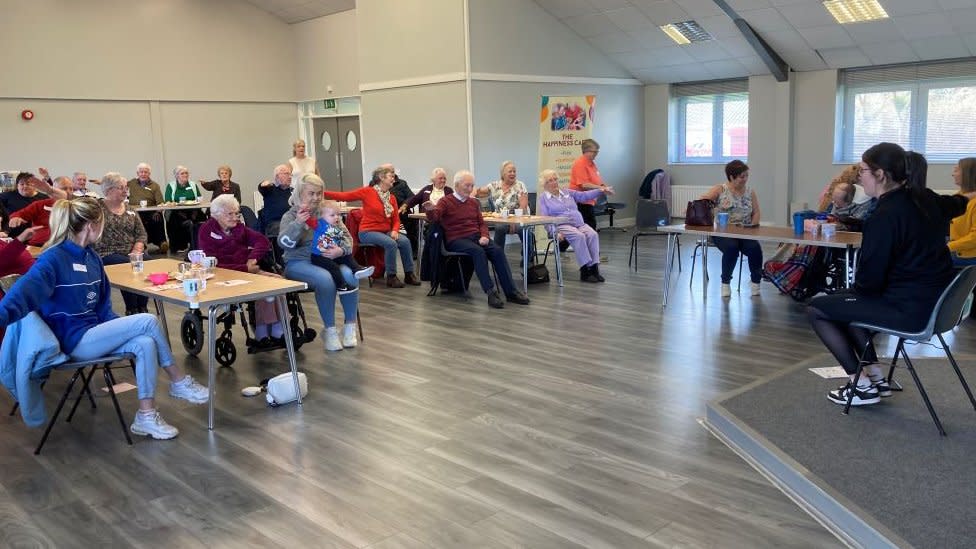Charity support funds loss will be 'devastating'

Charities say the end of support funds for cancer, mental health and carer services will be "devastating".
The three funds, worth £31.5 million, were made available in 2021 by the Department of Health (DOH) in response to the Covid-19 pandemic.
The DOH says funding cannot be extended and will end as planned "due to the financial situation" it faces.
Terri McQuaid, who is a full-time carer for her husband, said the support had been a lifeline.
'Two hours of happiness'
She accesses respite offered by a group in Kilkeel, through the funding, for her 68-year-old husband Brian.
He has a rare form of Alzheimer's and is housebound.
Happiness Cafés provide respite care at home, giving carers of those with dementia a break.
She said the café gives her a couple of hours out of her caring role.
"It's called a Happiness Café and that's really what it is. It's just two hours of happiness."

The 66-year-old described the carers who give her respite as a "lifeline".
"I don't know what we would do without them," she said.
While Terri also gets support from the Health Trust, she relies on the extra hours from the carers' fund.
Terri said this allows here to do "normal things" or go to the café.
"I meet friends, I get my hair done, I go for coffees, and I go for walks."

At the café, Terri gets to speak with other carers, who give "support and backup in what is a difficult journey with my husband".
Terri is worried about how the end of funding will affect her mental and physical health.
"If we lose that funding and I don't have the carers' fund, how is that going to affect my mental health?
"That is something that causes me a lot of anxiety because my husband depends on me and if I'm not fit to look after him, what's going to happen to him?" said Terri.
The Happiness Cafés provide information, advice and health and wellbeing activities in Kilkeel, Ballymartin, Rostrevor, Warrenpoint, Newry, Bessbrook and Markethill.

The charity's chief executive Marie O'Brien says it has provided 946 hours of care but its funding will run out at the end of June.
Marie said those who rely on this service will be "devastated".
"Some who use the respite care to attend our café wouldn't be able to join us because their loved one is bed bound," she said.
"By not providing this break to them, they can't have a social circle."
Cancer lifeline
At the age of 60, Gloria Matthews refers to herself as cancer free, despite having three cancer diagnoses within five years.
She was diagnosed with breast cancer in 2005, when she was 42.
She found Cancer Lifeline after seeing an advert in a local paper and has "never looked back".
Cancer Lifeline has been supporting people affected by cancer in north Belfast for almost 25 years.
Gloria said the ability to access services for free, especially counselling, has been a "saving grace".

But Gloria's cancer returned as her breast cancer metastasized into both lungs. She also had a tumour in her neck.
In 2008, Gloria got a terminal diagnosis and was given 12 to 18 months to live.
"That was harrowing. That was worse than the first diagnosis because you can't really survive without your lungs," she said.
"I had two young daughters, so I had to fight for them as well as myself.
"They treated my cancer very aggressively and miraculously it receded."
'Eased my pain'
Gloria said going through cancer again made her realise she was not the only one suffering, her family were "in pain as well".
She said her family benefitted from Cancer Lifeline as well which "eased my pain."
"The beauty of Cancer Lifeline is that we recognise that a person who has been diagnosed with cancer, it's their journey yes, but it also affects family members or friends.
"We offer those same services to family members as we do to the cancer patient," she said.
Gloria said the prospect of losing the funding "would be taking away a lifeline" and would be "devastating" on a personal and professional level as she is also now a board member.
She said three things would suffer, "possible jobs, the Health Service, and the cancer patient who is at the heart of all this".
"It's very emotional because if it wasn't here, I would have felt lost," said Gloria.
"I know the benefits and what Cancer Lifeline can do for one individual which ripples out to their family, it doesn't bear thinking about no funding."
The support funds were administered and managed by the Community Foundation NI, using Covid-19 emergency funding made available to the Department of Health.
They were one-off, non-recurring for a period of three years, from April 2021 to March 2024 but the funds are now exhausted.
Lobbying for continued investment
The Foundation's health funds coordinator Richard Rogers said 179 organisations and 233 projects have been supported through this funding.
Mr Rogers said some would "cease to exist" while others would have to downscale services as a result of the funding ending.
"Some of the larger charities have more capacity and may be more robust and will be able to continue services, but for the vast majority it will have a huge impact on what they're able to deliver.
"We're hoping to lobby the [health] minister and the department [of health] and make the case for continued investment in these funds and these organisations," he said.
The Department of Health said it would work with the Community Foundation NI in "undertaking a robust evaluation of the funds."
It added it would "continue to explore ways to minimise the impact on services."
